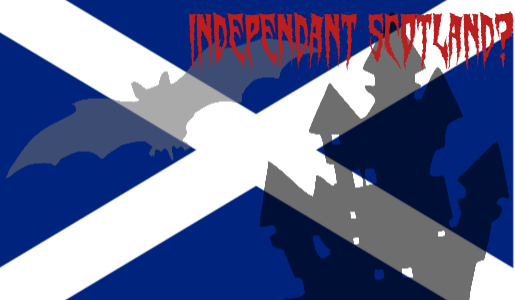Independant Scotland?
All Europe will focus on Scotland next thursday. Some people with hope, othe ones with fear: the referundum for independance will be scanned by the citizens, the medias and the political work. Mainly, I have the same opinion as the researcher from the UCL Vincent Laborderie. His interview is in rue89 here, he speaks about civic nationalism, pro-european independantists and arguments to become pro-independant.
Before coming back on 2 particular aspects, european peace and bilateral agreements, I remind that I do not believe in the splitting of Belgium. First because the Flamish electors do not want the end of our country. The Standaard in the article Welke kiezers willen splitsing België? made a study in February 2014 that concluded that even in the NVA less than 1 out of 5 elector was for the splitting, 37,5% in the Vlaams Belang. Second, because we should touch Constitution as I explained in my article kamikazes, really?

Peace and bilateral agreements
One of the characteristic of the European Union was to be built to insure a lasting peace on the continent. It's a success. Although some political movements " less Europe ", we note that the countries constituing the EU lost very little of their sovereignty against supra-national. We passed from an anarchist situation, with the meaning of a lack of hierarchy where every State-Nation did what he wanted and, unfortunately, war to countries that respected international laws. The question is not about debating if it's good or not but to underline that the agreements are respected. It is clear that in EU, we are in peace since WW II.
If the States of EU were submissive to the supra-national entities, a region becoming independant would not be a problem. In fact, the boarders would be only geographical ones. With the Schengen agreements and the free circulation, nothing could go against building new States. My opinion is that we are changing paradigm: we are coming from a State nation ordered world to a peaceful international cooperation. Inside EU, it works. So why would not we accept new countries? Of course in Scotland other problems would appear like currency, olympic athletes of even EU membership, but that does not change anything to the fact that the Scottish people is recognized. For example, let's have a look to the 5 nations tournament.
I don't believe neither in the threat of being kicked out from EU. We would have too many legal or economic problems, but it would not touch the EU integration nor the peaceful and economic goals of Europe. It does not even touch the taboo of a country leaving Europe.
Let's play an intellectual game and imaginge that Scotland becomes independant and could not be a member of EU anymore. I do not believe in this scenario but let's imagine. Since 2004, European neighborhood policy is in place, the officiel site is very clear:

Through its European Neighbourhood Policy (ENP), which has been revised in November 2015, the EU works with its Southern and Eastern Neighbours to foster stabilisation, security and prosperity, in line with the Global Strategy for the European Union's Foreign and Security Policy.
Could we imagine that there would not be any agreement with Scotland? We could observe Switzerland and the bilateral agreements they have with EU without being member of it. I don't think it would be different with Scotland. If we enter the paradigm of European regions, I do not see any major problem in front of if there are new independant countries.
But are the independantists in majority? What about international recognition or self-determination of people? These are the most important questions. Let's take a 16 years old Lagavulin and let's speak about it.



